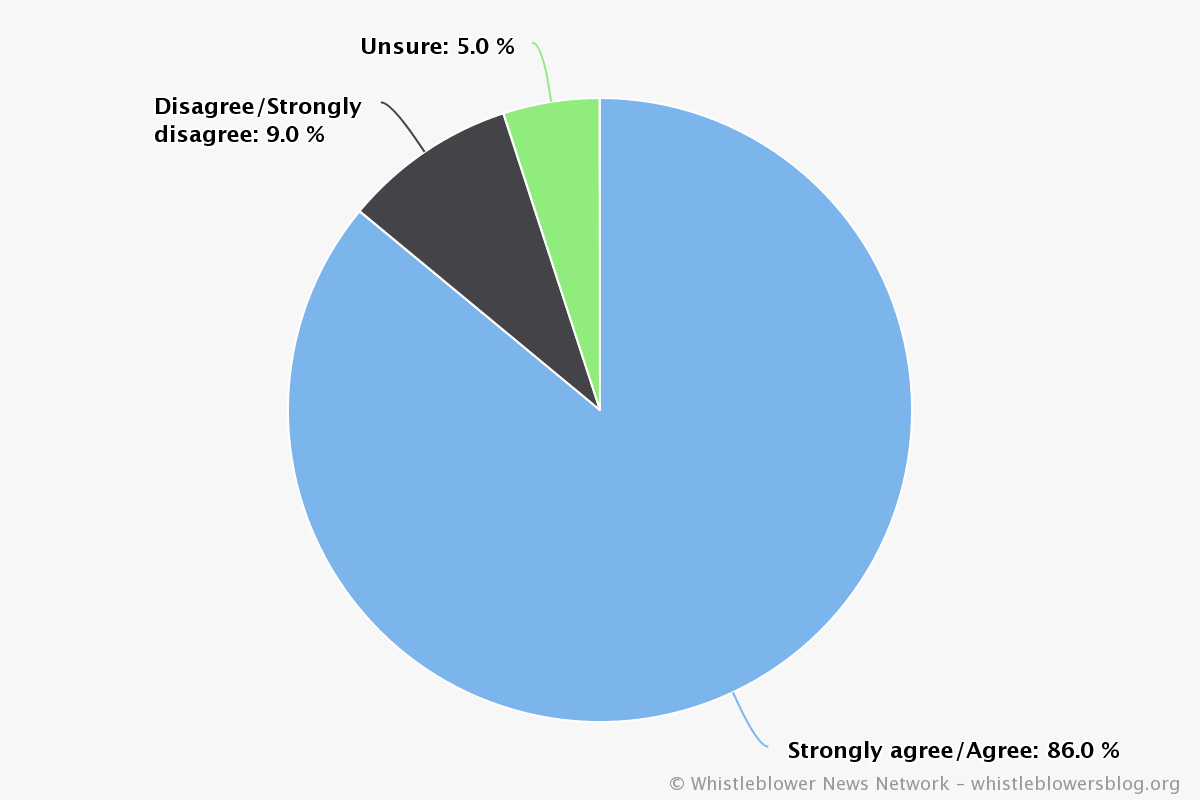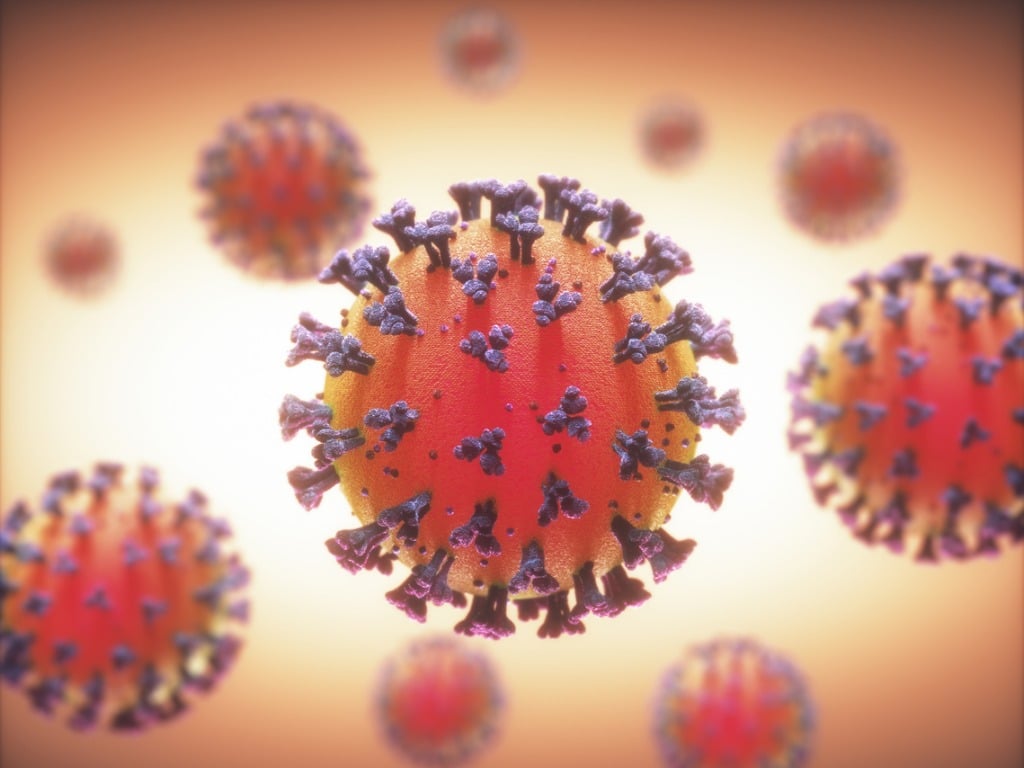Throughout the course of the ongoing COVID-19 pandemic, whistleblowers have spoken up for the greater good and tried to expose virus response shortcomings, health violations, and other fraud and misconduct during these fraught times. In many cases during the pandemic, whistleblowers have been retaliated against and treated poorly; however, a new poll shows that the majority of Americans support stronger protections for federal and corporate whistleblowers.
The poll, conducted by A+ rated Marist Polls, shows that 86% of adults, registered voters, and likely voters responded that there should be stronger legal protection for government whistleblowers. There was agreement across political parties, too: 94% of Democrats, 78% of Republicans, and 88% of Independents responded that government whistleblowers should have stronger legal protections. Additionally, 29% of adults surveyed believe stronger corporate whistleblower protections should be an immediate priority for Congress. To view the full poll results, click here.
Likely Voters

Republicans
Democrats
Independents
The poll’s findings bode well for employees who want to blow the whistle in the future—if lawmakers listen to likely voters and take action to strengthen whistleblower laws. The results should also inform how our country and others handle whistleblowers and whistleblower retaliation so that the experiences that COVID-19 whistleblowers went through will never happen again.
One of the most prominent whistleblower stories that came out of China during the COVID-19 outbreak was of Dr. Li Wenliang, who was an ophthalmologist at Wuhan Central Hospital. When he noticed “seven cases of a virus that looked like SARS,” Dr. Li notified other doctors to wear protective gear via a group chat on December 30, 2019. Four days later, Dr. Li was “summoned to the Public Security Bureau” and instructed to sign a letter accusing him of “making false comments” that “severely disturbed the social order,” according to a BBC News article. Dr. Li was diagnosed with COVID-19 on January 30, and media outlets reported his passing on February 7, 2020. Dr. Li was persecuted for his whistleblowing and paid the ultimate price: to ensure that this never happens to U.S. healthcare workers, we need to take actionable steps towards strengthening whistleblower protections in the U.S.
Two high-profile coronavirus whistleblowers whose stories made headlines this year worked at U.S. federal agencies. Dr. Rick Bright worked as the Department of Health and Human Services (HHS) Deputy Assistant Secretary for Preparedness and Response and the Director of HHS’ Biomedical Advanced Research and Development Authority (BARDA) Influenza Division International Program. In early June, Dr. Bright filed a whistleblower complaint with the Office of Special Counsel (OSC), alleging that HHS continuously criticized his urging for virus preparedness and procurement of vital medical supplies like masks and respirators. On April 17, Dr. Bright was removed from his post at BARDA to the National Institutes of Health. He has since testified before the House Energy and Commerce Panel about the U.S.’ pandemic preparedness and COVID-19 response.
Transportation Security Administration (TSA) administrator Jay Brainard blew the whistle on federal COVID-19 responses in the transportation industry. Brainard filed a whistleblower complaint to the OSC in mid-June, alleging that the TSA “had refused to let local supervisors mandate safety procedures for employees like wearing masks and changing or sanitizing protective gloves when working with passengers,” according to a previous WNN article. The OSC urged the Department of Homeland Security to investigate the whistleblower complaint, and the TSA has since made changes to its COVID-19 safety protocol. Both of these government whistleblowers could have greatly benefitted from stronger whistleblower protection laws, of which 86% of Americans are in favor.
Americans all over the country have become COVID-19 whistleblowers, and in many cases, these individuals would have been better protected if federal whistleblower laws were stronger. A woman working in a Colorado meatpacking facility spoke to a local news outlet and blew the whistle on violations of COVID-19 safety guidelines in early July. Nurses at a Massachusetts nursing home were retaliated against in early June when they blew the whistle on their employer’s incompetent response to the COVID-19 pandemic. The nurses claim they have continually raised understaffing issues to the hospital administration but to no avail. Jhonna Porter, a registered nurse, was retaliated against when she posted in a private Facebook group about the presence of COVID-19 and lack of adequate PPE where she worked in a California hospital. Most recently, Max Kennedy Jr., the grandson of Robert F. Kennedy, blew the whistle on Jared Kushner’s White House COVID-19 Supply-Chain Task Force, which Kennedy claims was severely lacking in expertise and dangerously influenced by political agendas. To increase accountability and fight fraud and corruption, we need stronger protections for government and corporate whistleblowers, and the majority of Americans feel the same way.
Lawmakers are already trying to alleviate the weight whistleblowers carry with them: on June 15, Rep. Jackie Speier (D-CA) introduced H.R. 7227, or the COVID-19 Whistleblower Protection Act. The Colorado General Assembly passed House Bill 20-1415 on June 6, which outlawed whistleblower retaliation. The city of Philadelphia passed Bill No. 200328 on June 12, prohibiting retaliation against workers who blow the whistle on or refuse to work in unsafe COVID-19 conditions. Additionally, Rep. Beth Moore of the Georgia House of Representatives created a whistleblowing email for students, faculty, and staff to report COVID-19 safety violations after a photo of a packed high school hallway in Georgia surfaced. The high school depicted in the photo retaliated against the fifteen-year-old student who took and posted the image online, suspending her (a decision which has since been reversed).
These new poll results should urge Congress to take note of the power behind whistleblowers: 82% of Americans believe Congress should prioritize protections for corporate whistleblowers. Approximately 87% of Democrats and 74% of Republicans believe Congress should prioritize passing stronger laws to protect corporate whistleblowers.
Democrat
Republican
Whistleblowing is a bipartisan cause; it is also one that will contribute to the betterment of society. With better whistleblower protections and laws in place, government, healthcare, and corporate whistleblowers would feel safer blowing the whistle on wrongdoing and corruption, and many of these individuals’ stories wouldn’t have to end in firings, mistreatment, or other retaliatory actions.
Many of these brave individuals have sacrificed their own well-being — and sometimes even careers — to inform the public about misconduct and dangers during this severe public health crisis. In many cases, COVID-19 whistleblowers have lacked protection from the federal government or their employers and faced retaliation for their courage. The poll results bring good news to those who have risked everything for the benefit of our society: America is on the whistleblower’s side.
